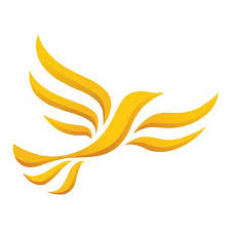
Email: stella@papersnail.co.uk
Total Article : 28
About Me:Sixth form student studying Politics, Biology and Psychology. I'm interested in a range of topics such as music, current affairs, women's issues and world politics.

In many ways, anarchism is just an extreme form of liberalism, as anarchists put emphasis on the need for a stateless society which liberals also favour, although they deem it impossible and so settle for a state that is as small and minimal as possible. Different branches of anarchism align with liberalism greatly, such as anarcho-capitalists and their favour of the free-market, which classical liberals also subscribe to. However, anarchists ultimately share a view of human nature closer to that of socialists than liberals. For example, both anarchists and socialists emphasise the positive potential of human nature in co-operative and harmonious fraternity, where liberals emphasise the self-seeking and egoistical potential of humans. Anarchism has the capacity to operate nicely as an extreme version of both liberalism and socialism – anarcho-individualists leaning towards liberalism and anarcho-collectivists and communists leaning towards socialism.
One way in which anarchism is closer to liberalism than it is to socialism is over their view of the state. Anarchists believe society could, and should exist without a state all together because humans have the capacity to operate under natural order in society that will be sustained by mutual human cooperation as opposed to order that is imposed by a corrupt state by threats and manipulation. Liberals subscribe to this idea of the state having the potential to be manipulative and corrupt, as Lord Acton puts it, ‘power corrupts, and absolute power corrupts absolutely’. However, the disagreement over the state between liberalism and anarchism lies in what they believe is possible. Anarchists believe a stateless society is possible, liberals believe that the state is a ‘necessary evil’ - because they view human nature as ultimately self-seeking and so they cannot support the possibility of humans working together in harmony without state imposition.

Another way in which anarchism is closer to liberalism than it is to socialism is over their view of the free market. Anarcho-capitalists support the free market entirely and believe that society could regulate the free market without the need for any state intervention (or in fact any state, period.). Classical liberals also have this strong support for the free market, as they subscribe to the idea of the guiding of the ‘invisible hand’. The invisible hand analogy suggests that consumers guide the free market in a way that benefits all in society. Anarchists would support this idea in a stateless society, as if free markets ran, for example, law courts – the best, most neutral and most fair law courts would be the most popular, hence the most profitable and would be sustained. Other law courts would be closed down as they would not provide the profit motive for their owners – this is the ‘invisible hand’ guiding the free markets to provide the best services and products for society. However, modern liberals have distanced themselves from this classically liberal idea of total free markets and they now favour more government intervention in the markets through the means of increasing corporation taxes and other monetary limits and regulations. Of course, anarcho-capitalists would not support this ideally as they stress the need for free markets to run in replacement of a state as opposed to running alongside it.
Image credits: https://twitter.com/libdems
https://en.wikipedia.org/wiki/Anarchism

0 Comment:
Be the first one to comment on this article.